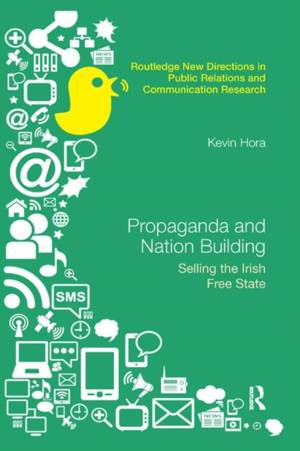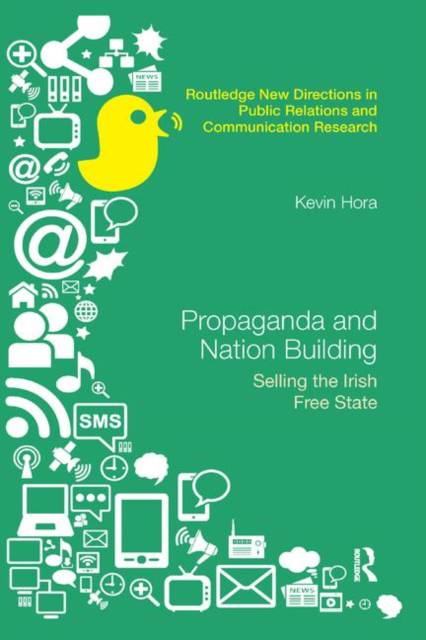
- Retrait gratuit dans votre magasin Club
- 7.000.000 titres dans notre catalogue
- Payer en toute sécurité
- Toujours un magasin près de chez vous
- Retrait gratuit dans votre magasin Club
- 7.000.0000 titres dans notre catalogue
- Payer en toute sécurité
- Toujours un magasin près de chez vous
Description
This book examines the origins of Ireland in its first independent incarnation, the Irish Free State (1922-1937). It explores how contemporary public relations and propaganda techniques were used to construct an identity for this new state - a state which after enduring seven years of insurrection and civil war, became one of the most stable democracies in Europe. This stability, the book argues, was constructed not solely through policies enacted by governments, but through the construction of a Gaelic, Catholic and Celtic national identity.
By shifting the perspective to how nation building was communicated, it weaves an interdisciplinary narrative that initiates a new understanding of nation building - providing insights of increasing relevance in current world events. Avoiding a simplistic cause and effect history of public relations, the book examines the uses and effects of early public relations from a political and societal perspective and suggests that while governments were only modestly successful in their varied propaganda efforts, cumulatively they facilitated a transition from violence to peace.
This will be of interest to researchers and advanced students with an interest in public relations, propaganda studies, nation building and Irish studies.
Spécifications
Parties prenantes
- Auteur(s) :
- Editeur:
Contenu
- Nombre de pages :
- 229
- Langue:
- Anglais
- Collection :
Caractéristiques
- EAN:
- 9780367870881
- Date de parution :
- 12-12-19
- Format:
- Livre broché
- Format numérique:
- Trade paperback (VS)
- Dimensions :
- 156 mm x 234 mm
- Poids :
- 344 g

Les avis
Nous publions uniquement les avis qui respectent les conditions requises. Consultez nos conditions pour les avis.






